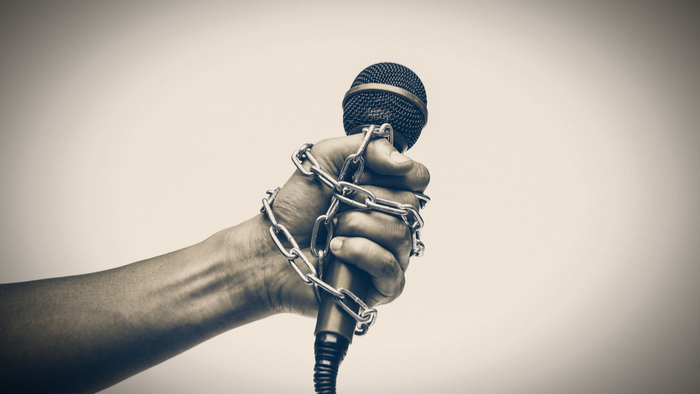The Supreme Court, in an interim order on Wednesday, passed directions to stop registering cases under Section 124A of the Indian Penal Code, which criminalises ‘Sedition’, and stay all pending trials, appeals, and proceedings under it.
This provides an opportunity for the many journalists, activists, and scholars currently booked under the Sedition Law to approach trial courts for bail as well as relief, in their respective cases.
What is the Sedition Law?
Section 124A of the IPC criminalises ‘sedition’. It states that “whoever, by words, either spoken or written, or by signs, or by visible representation, or otherwise, brings or attempts to bring into hatred or contempt, or attempts to excite disaffection towards the Government established by law in India shall be punished with imprisonment for life.”
The definition of “disaffection” includes “disloyalty and all feelings of enmity.” But the law also states that comments that disapprove of the government’s measures with a motive to obtain their alteration by lawful means, without attempting to incite hatred, contempt or disaffection, do not constitute an offence under this section. Likewise, comments expressing disapprobation of the administrative or other government actions without exciting or attempting to excite hatred, contempt or disaffection, do not constitute an offence under this section.
Introduced in the late 1800s during the Colonial era, the Sedition Law was initially used against Indian political leaders, who revolted against the British rule and fought for independence in the 18th and 19th centuries. In independent India, this law been severely criticised, time and again, for its misuse to curb freedom of speech in the country.
Sedition cases over the past decade
There were over 800 sedition cases pending across the country and approximately 13000 people were in jail between 2010 and 2021, as per a sedition database compiled by Article 14. Those charged under the law include journalists, activists, scholars, and academicians. As per the database, 106 of the sedition cases filed in this 11-year period were against those who allegedly posted “anti-national” or “pro-Pakistan” content on social media. All but one of these were filed after 2014, when the Bharatiya Janata Party (BJP) came to power at the centre.
The data also reveals that 96% of the sedition cases filed against 405 Indians, for criticising politicians and governments in those 11 years, were registered after 2014. Further, 149 of them were accused of making “critical and/or derogatory” remarks against Prime Minister Narendra Modi, and 144 of them were against Uttar Pradesh Chief Minister Yogi Adityanath.

Among those charged are the 16 activists and scholars who were detained in the Bhima Koregaon case in 2018. Aside from 82-year-old poet-activist Varavara Rao and 60-year-old lawyer and activist Sudha Bharadwaj, who are currently out on bail, and 84-year-old activist Father Stan Swamy, who died in custody last year, the remaining 13 are still in prison awaiting trial in the case.
Siddique Kappan, the Kerala-based freelance journalist, is also imprisoned under the Sedition Law. He was arrested in October 2020, while covering the gang-rape case in Hathras, Uttar Pradesh, along with three others. They too are awaiting trial.
Challenge to the Sedition Law
Eight petitions were filed in the Supreme Court challenging the constitutionality of the Sedition Law, by the Editors Guild of India, Major General SG Vombatkare (Retd), former Union Minister Arun Shourie, the People’s Union for Civil Liberties (PUCL), and others.
As per the Editors Guild, the Sedition Law has been “used far too often by Central and State governments against journalists, in an effort to curb independent reporting.”
The petitioners also pointed out that the provisions of the law date back to 1898, pre-dating the Constitution itself, and are being misused.
The Supreme Court, in its ruling, observed that “the rigours of Section 124A of IPC is not in tune with the current social milieu, and was intended for a time when this country was under the colonial regime.”
Recommended
The court further mentioned that it is necessary to maintain a balance between both the interests of security as well as the State’s wellbeing, while taking into account the “civil liberties of citizens.”
It thus passed the order stating that “the State and Central Governments will restrain from registering any FIR, continuing any investigation or taking any coercive measures by invoking Section 124A of IPC, while the aforesaid provision of law is under consideration.”
In case of any fresh case is registered under the section, affected parties have the liberty to approach the concerned court for appropriate relief.
The court also directed that “all pending trials, appeals and proceedings with respect to charges framed under Section 124A of IPC be kept in abeyance.”
These directions will remain in effect until further orders are passed. The court has listed the petitions for hearing again in the third week of July.



